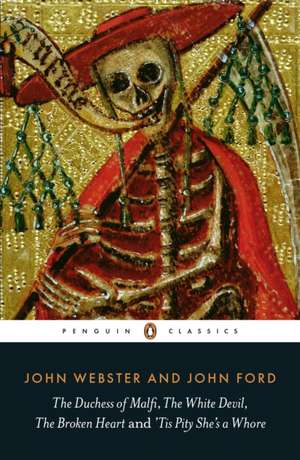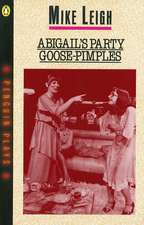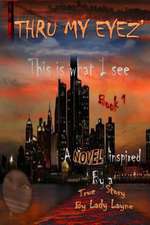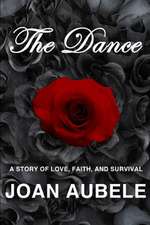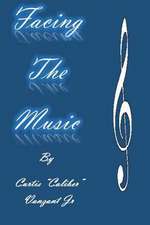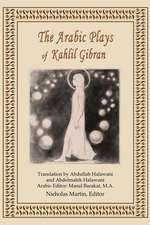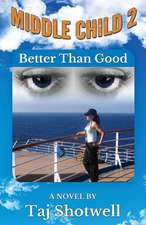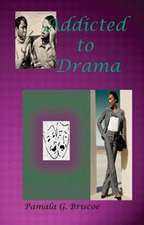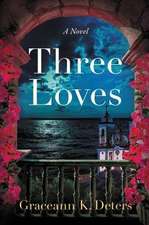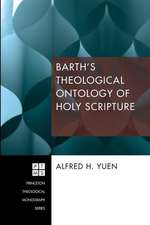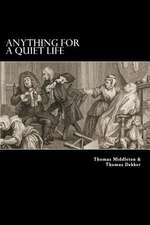The Duchess of Malfi, The White Devil, The Broken Heart and 'Tis Pity She's a Whore
Autor John Ford, John Webster Editat de Jane Kingsley-Smithen Limba Engleză Paperback – 6 aug 2014
Jane Kingsley-Smith has edited the plays from the earliest quartos and added invaluable editorial material, including explanatory glosses and a new introduction that discusses how the playwrights used the theatre to explore issues around women, sex, power and violence.
Together with the Penguin volume ofFive Revenge Tragedies, edited by Emma Smith, this is the essential sourcebook for drama in the period.
'Revenge, hatred, villainy, incest, and murder upon murder are their constant themes ... and they handle these horrors with little or no moral purpose, save that of exciting and amusing the audience ... We should call him a madman who allowed his daughters or his servants to see such representations' - Charles Kingsley
JOHN WEBSTER was born in about 1578 in London. He studied law at the Middle Temple before embarking on a career in the theatre, collaborating on many plays with contemporary dramatists. But it was his two solo-authored tragedies,The White Devil(1612) andThe Duchess of Malfi(1614) which sealed his reputation. In 1606 he married Sara Peniall, who was seven months pregnant, and they went on to have at least four children. He died in the 1630s.
JOHN FORD was born in 1586 in Devon. His early career was wholly concerned with poetry and philosophical works, and it was not until the 1620s that he began collaborating on stage plays. In the late 1620s, he began writing alone, producing the eight plays on which his reputation would be based, includingThe Broken Heart(1620) and'Tis Pity She's a Whore(c.1630). Nothing more is known of Ford after the performance of his last play in 1638.
JANE KINGSLEY-SMITH completed her PhD at the Shakespeare Institute, Stratford-upon-Avon and is the author of two monographs:Shakespeare's Drama of Exile(2003) andCupid in Early Modern Literature and Culture(2010). She is a Reader at Roehampton University, London, and a regular guest speaker at Shakespeare's Globe.
Preț: 73.45 lei
Preț vechi: 84.98 lei
-14% Nou
Puncte Express: 110
Preț estimativ în valută:
14.06€ • 15.03$ • 11.72£
14.06€ • 15.03$ • 11.72£
Carte disponibilă
Livrare economică 28 martie-09 aprilie
Livrare express 13-19 martie pentru 42.06 lei
Preluare comenzi: 021 569.72.76
Specificații
ISBN-13: 9780141392233
ISBN-10: 0141392231
Pagini: 640
Dimensiuni: 129 x 198 x 27 mm
Greutate: 0.5 kg
Ediția:Critical
Editura: Penguin Books
Colecția Penguin Classics
Locul publicării:London, United Kingdom
ISBN-10: 0141392231
Pagini: 640
Dimensiuni: 129 x 198 x 27 mm
Greutate: 0.5 kg
Ediția:Critical
Editura: Penguin Books
Colecția Penguin Classics
Locul publicării:London, United Kingdom
Notă biografică
John
Webster
was
born
in
about
1578
in
London.
He
studied
law
at
the
Middle
Temple
before
embarking
on
a
career
in
the
theatre,
collaborating
on
many
plays
with
contemporary
dramatists.
But
it
was
his
two
solo-authored
tragedies,The
White
Devil(1612)
andThe
Duchess
of
Malfi(1614),
which
sealed
his
reputation.
He
died
in
the
1630s.
John Ford was born in 1586 in Devon. His early career was wholly concerned with poetry and philosophical works, and it was not until the 1620s that he began writing stage plays, includingThe Broken Heart(1620) and'Tis Pity She's a Whore(c.1630). Nothing more is known of Ford after the performance of his last play in 1638.
Jane Kingsley-Smith is a Reader at Roehampton University, London and author ofShakespeare's Drama of Exile(2003) andCupid in Early Modern Literature and Culture(2010).
John Ford was born in 1586 in Devon. His early career was wholly concerned with poetry and philosophical works, and it was not until the 1620s that he began writing stage plays, includingThe Broken Heart(1620) and'Tis Pity She's a Whore(c.1630). Nothing more is known of Ford after the performance of his last play in 1638.
Jane Kingsley-Smith is a Reader at Roehampton University, London and author ofShakespeare's Drama of Exile(2003) andCupid in Early Modern Literature and Culture(2010).
Recenzii
Revenge,
hatred,
villainy,
incest,
and
murder
upon
murder
are
their
constant
themes
.
.
.
and
they
handle
these
horrors
with
little
or
no
moral
purpose,
save
that
of
exciting
and
amusing
the
audience
.
.
.
We
should
call
him
a
madman
who
allowed
his
daughters
or
his
servants
to
see
such
representations
